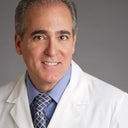I agree with my colleagues; no problem with vitamin E two months after your facelift.Wondering, "What's the deal with vitamin E and surgery?" Here's your answer: With any surgery, it is important to prevent bruising or hematoma (collection of blood.) In a procedure like the facelift, it's crucial. The concern for hematoma is greatest in the first 24 hours after surgery, and your surgeon will likely ask you to avoid some medications before and directly afterwards. In general the following factors have been reported predispose to the risk of hematoma/bruising: Hypertension, aspirin, NSAIDS and any blood thinner. There is also some data that suggests the risk of post-operative hematoma is increased with high doses of Vitamin E and certain herbal supplements. This has led to the familiar statement: "do not take any vitamins, herbs, aspirin, and any medications that may increase bleeding for 10 days before your operation." However, a nice study (see link below) looked specifically at Vitamin E and facelift, and actually found no increased risk of bleeding.Overall, what medication you are taking before your surgery is important. Two months later? No problem. Congratulations on the facelift!








